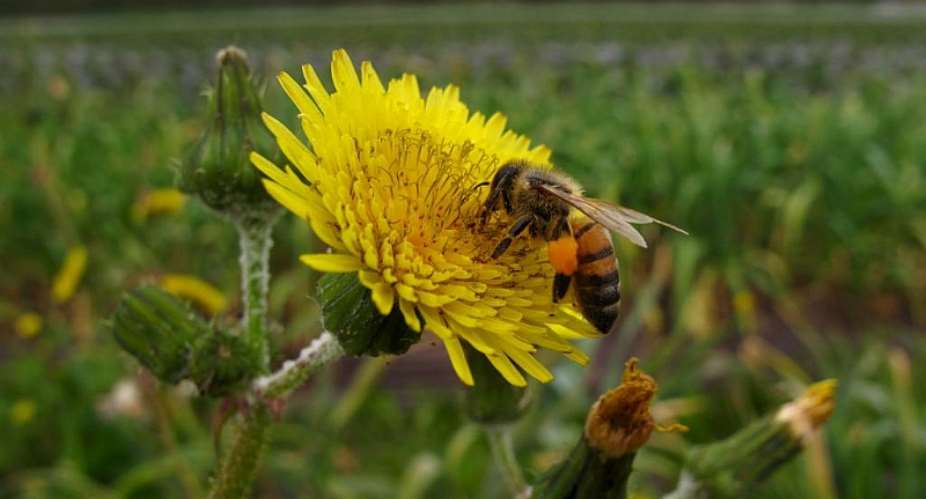Scientists and diplomats from around the world are in Paris on Monday for a major event tasked with reviewing the state of life on Earth – and devising a rescue plan to save what's left, following massive biodiversity losses.
“We're in trouble – and it's the young children of the world and future generations that we have to think about,” warned Robert Watson, chair of the UN's Intergovernmental Panel on Biodiversity Ecosystem Services (IPBES), as he delivered the opening address for the five-day event, being held at Unesco's headquarters.
Up to a million species face extinction – many within decades – while three-quarters of Earth's land surface has been “severely altered”, a part of the report obtained by AFP said. A third of the ocean's fish stocks are in decline, and a drop in bee populations is threatening essential crops.
Impacts of biodiversity losses 'extend beyond nature'
However, biodiversity is not a uniquely environmental issue, and it's more complex than preventing extinctions and ensuring the sustainable management of the Earth's surface.
IPBES wants to show the world that biodiversity is a development issue, an economic issue, a social issue – and a moral issue. “Nature is crucial for food production, for pure water, for medicines and even for social cohesion,” says Watson, who is also a renowned environmental scientist.
This week's collaboration will vet the first assessment of global biodiversity in almost 15 years. A summary for policymakers outlining the crisis facing nature will be submitted to more than 130 countries on 6 May. Until then, its contents remain tightly under wraps.
What we do know is that this review – three years in the making – was put together by 150 international experts from the natural and social sciences, drawing on contributions from hundreds of others.
Scientists working alongside policymakers
The scientists won't be telling governments what to do as such. Instead they'll likely be drawing attention to the drivers of change and discussing the implications of various policy choices.
The IPBES report will offer clarity on where the world stands in relation to the UN Sustainable Development Goals, the Aichi Biodiversity Targets and the Paris climate agreement.
“If governments want to achieve the sustainable development goals, urgent action is needed to limit human-induced climate change and the loss of biodiversity,” Watson said. “Addressing the loss of biodiversity can only be achieved by rapid and transformative actions everywhere in the world.”
IPBES was set up in 2012 with the aim of publishing science for policymakers in the same way the UN's climate science panel, the Intergovernmental Panel for Climate Change (IPCC), has been doing.
Watson, a former chair of the IPCC, stressed that the issues of climate change and loss of biodiversity are linked and need to be tackled together. The global assessment, he promised, would “empower everybody” to act using informed evidence.
A main architect of the Paris agreement, Laurence Tubiana, CEO of the Europe Climate Foundation says a recent report by the IPCC shows to what extent climate change threatens biodiversity. "And the upcoming IPBES report – as important for humanity – will show these two problems have overlapping solutions."
After this week, no one will be able to say they didn't know about the biodiversity crisis, Unesco's director general, Audrey Azoulay, said in a speech on Monday. “This is a critical moment in history. Every hour counts. Young people are watching and they will hold us accountable.”





 Former Kotoko Player George Asare elected SRC President at PUG Law Faculty
Former Kotoko Player George Asare elected SRC President at PUG Law Faculty
 2024 elections: Consider ‘dumsor’ when casting your votes; NPP deserves less — P...
2024 elections: Consider ‘dumsor’ when casting your votes; NPP deserves less — P...
 You have no grounds to call Mahama incompetent; you’ve failed — Prof. Marfo blas...
You have no grounds to call Mahama incompetent; you’ve failed — Prof. Marfo blas...
 2024 elections: NPP creates better policies for people like us; we’ll vote for B...
2024 elections: NPP creates better policies for people like us; we’ll vote for B...
 Don’t exchange your life for wealth; a sparkle of fire can be your end — Gender ...
Don’t exchange your life for wealth; a sparkle of fire can be your end — Gender ...
 Ghana’s newly installed Poland train reportedly involved in accident while on a ...
Ghana’s newly installed Poland train reportedly involved in accident while on a ...
 Chieftaincy disputes: Government imposes 4pm to 7am curfew on Sampa township
Chieftaincy disputes: Government imposes 4pm to 7am curfew on Sampa township
 Franklin Cudjoe fumes at unaccountable wasteful executive living large at the ex...
Franklin Cudjoe fumes at unaccountable wasteful executive living large at the ex...
 I'll 'stoop too low' for votes; I'm never moved by your propaganda — Oquaye Jnr ...
I'll 'stoop too low' for votes; I'm never moved by your propaganda — Oquaye Jnr ...
 Kumasi Thermal Plant commissioning: I pray God opens the eyes of leaders who don...
Kumasi Thermal Plant commissioning: I pray God opens the eyes of leaders who don...
